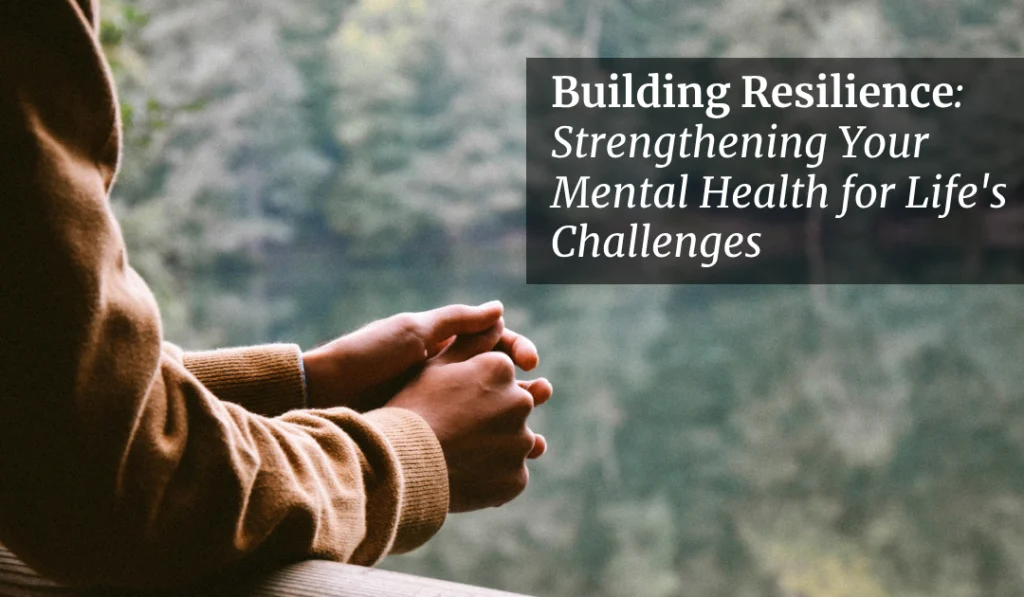Uncategorized
Strengthening Your Mental Health & Building Resilience for Life’s Challenges
Life is full of ups and downs, twists and turns, moments of triumph, and periods of adversity. In the face of adversity, resilience—the ability to bounce back from setbacks and thrive in the face of adversity—emerges as a powerful ally. In this exploration, we delve into mental health strategies for tough times, equipping you with insights and techniques to cultivate inner strength, resilience, and emotional well-being.
Understanding Resilience: The Power of Inner Strength
Resilience and mental health are not about avoiding challenges or denying the pain of difficult experiences; it’s about embracing life’s inevitable setbacks as opportunities for growth and transformation. Here are some key insights into resilience:
- Acceptance and Adaptability: Resilient individuals acknowledge and accept the reality of their circumstances, even in the face of adversity. Rather than resisting change or dwelling on what cannot be changed, they focus on adapting and finding solutions.
- Positive Mindset and Optimism: Cultivating a positive outlook and maintaining optimism in the face of challenges can bolster resilience. Optimistic individuals tend to view setbacks as temporary and surmountable, fostering a sense of hope and determination.
- Social Support and Connection: Building strong support networks and fostering meaningful connections with others are essential components of resilience. Drawing on the support of friends, family, or community can provide emotional validation, encouragement, and perspective during difficult times.
- Self-Compassion and Self-Care: Practicing self-compassion involves treating oneself with kindness, understanding, and acceptance, especially during times of struggle. Engaging in self-care activities that nourish the body, mind, and spirit—such as mindfulness, exercise, hobbies, and relaxation techniques—can replenish energy and resilience reserves.
Techniques for Building Mental Health & Resilience
Now, let’s explore practical techniques for building mental health and resilience and coping with challenges effectively:
- Cultivate Mindfulness and Emotional Awareness: Mindfulness practices, such as meditation, deep breathing, and body scan exercises, cultivate present-moment awareness and help regulate emotions. By observing thoughts and feelings without judgment, you can develop greater emotional resilience and self-regulation.
- Develop Problem-Solving Skills: Break down challenges into manageable steps and brainstorm potential solutions. Focus on what you can control and take proactive steps to address obstacles, seeking support and guidance when needed.
- Practice Gratitude and Perspective-Taking: Cultivate a gratitude mindset by reflecting on the blessings, strengths, and lessons present in your life, even amidst adversity. Shifting perspective and finding meaning in difficult experiences can foster resilience and post-traumatic growth.
- Set Boundaries and Prioritize Self-Care: Establish healthy boundaries to protect your time, energy, and well-being. Prioritize self-care activities that replenish your physical, emotional, and mental reserves, honoring your needs and limitations.
- Seek Professional Support When Needed: Don’t hesitate to reach out for professional support if you’re struggling to cope with challenges or experiencing persistent distress. Therapists, counselors, and mental health professionals can offer guidance, validation, and evidence-based strategies for building resilience and navigating tough times.
Embracing Resilience as a Way of Life
Building resilience is a lifelong journey—a continuous process of growth, learning, and self-discovery. By cultivating inner strength, fostering supportive relationships, and practicing resilience-building techniques, you can navigate life’s challenges with grace, courage, and resilience. Remember, resilience and mental health are not about avoiding difficulties; it’s about embracing them as opportunities for growth and transformation.
So, stand tall, harness your inner power, and face life’s challenges with unwavering resolve and resilience.


